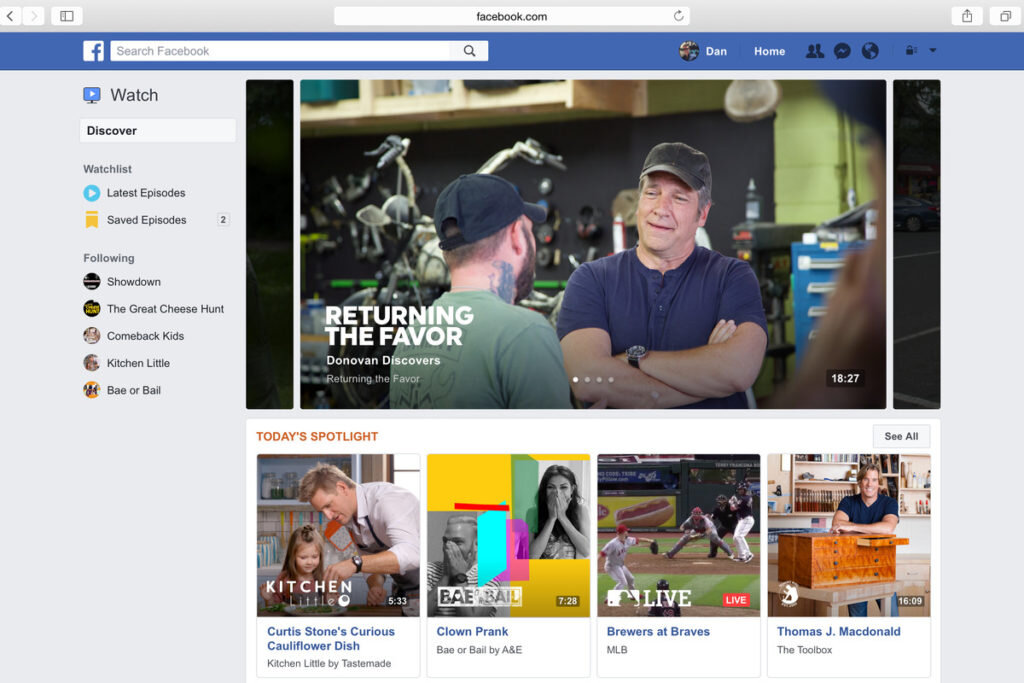Watch the 'Book!? Color Me Excited & Skeptical
While everyone in TV land is taking notes and some are probably shaking a bit in the boots about Facebook Watch right now-- many more are celebrating. Me? I'm torn between excited about whats now possible and skeptical that Facebook will overcome the hurdles required. Here are my notes:Excited about the data: Deep analytics mean audience parting and micro-targeting at scale. As Nick Cicero points out, that kind of deep data doesn't just help people discover content, it helps marketers drive conversions from advertising, and it allows Facebook to skip some pains of linear TV--- airing something and hoping people tune in, then offering VOD.Skeptical: Do I care that my Aunt Lee is watching the Price is Right? No! Or that people I respect are geeked on a new show? Not really, I have stuff to do. And so do you and so do they. This isn't multi-player immersive content we're talking about, (yet!).More, Facebook already has a ton of data and is listening passively and can help advertisers target me or at least my household very well.The key is, can they get me for more than a few seconds to drive a premium for advertisers? If they get a propensity to click through to advertisers, yes, most definitely. But if not? Are brands ready to give up 30 seconds blasting in the home for 3 seconds on FB?Excited about the fling scene: Texting with Redniss yesterday, he got me excited about the discover on mobile, fling to TV white space. That I can see and get stoked for. People might very well find the show, fling it and enjoy it on 70 inches in tomorrow's world. That is certainly happening for YouTube-- but in big numbers?I don't know what it will take to bridge that divide. But I can only imagine Facebook and Google and Apple for that matter all have an interest in stoking that behavior.But Facebook has a phone and a behavior problem: Who watches long form on a phone? People go to FB with a tempo in mind: thumb through little bursts of things that make me feel things then toss the phone down disgusted even if it felt fun or interesting every third post. Then pick it up again in a few (hours/minutes) and repeat the cycle. (This is why I deleted FB and probably why such large segments in the US aren't on FB).FB has proven it can turn out a few billion micro-views to video every day-- but it has yet to prove it can generate long form success. Even with all the emphasis on live-- how many"hits" came from the last year? None in TV terms.So why is this different? And what will it take to get the TV industrial complex to switch its focus to produce for FB--something that can be consumed small but hold up on 70 inches?In fairness, FB created a LIVE boom-- and though many premium producers have called it a revenue bust, the mid and long tails are now embedding live into their workflows and finding great success. The FB effect was real and quantifiable.I'm also very excited about the leveling of the production playing field. Now (presumably) smaller outfits with good ideas and compelling value to audiences (Cheddar, Refinery, DanceON) will have an easier time testing show formats with an audience without having to kiss up to some asshat at the Ivy. Let's hope it also doesn't require kissing the rings in Silicon, either. FB for all its criticisms is great to work with because its driven more by logic and future-thinking than the TV execs that came up 30 years ago (just sayin).My guess is there is a long runway for FB to figure out Watch and that where it ends up will be different from where we are now. I imagine that's the plan and while many will say Facebook is simply becoming more like YouTube, that may be like calling either just a website in 2007.

